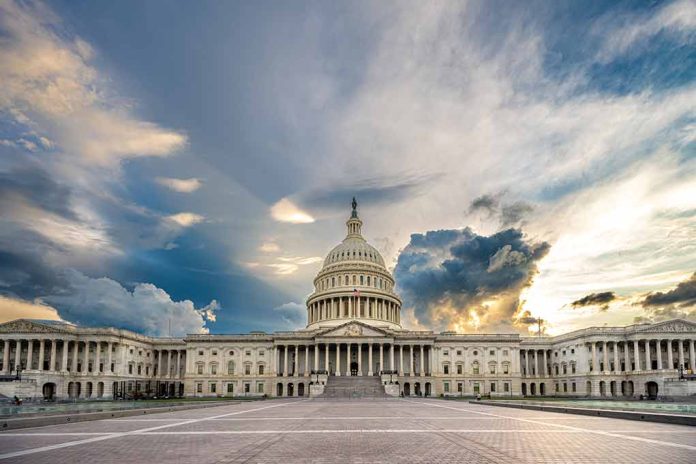
The House of Representatives has passed a three-month continuing resolution to keep the government funded until December 20, effectively averting an imminent shutdown.
At a Glance
- House Republicans fast-track a short-term spending bill to keep the government open.
- The bill bypasses the House Rules Committee due to opposition from conservative members.
- Democratic support is needed for the legislation to pass.
- The vote took place on Wednesday, according to House Majority Leader Steve Scalise.
- Speaker Mike Johnson warned against a government shutdown, citing polling data.
House Republicans Fast-Track Spending Bill
The House of Representatives voted to approve a three-month continuing resolution (CR) to keep the government funded until December 20. This move aims to prevent a government shutdown while setting up another round of intense spending negotiations as the holidays approach. The revised plan was introduced by House Speaker Mike Johnson after his previous six-month CR proposal, coupled with the SAVE Act, failed to gain traction.
Opposition and Bypassing the House Rules Committee
The bill bypassed the House Rules Committee due to strong opposition from several conservative members who prefer passing individual appropriations bills rather than short-term measures. House conservatives, including Reps. Thomas Massie and Chip Roy, voiced their disapproval, leading to the cancellation of a committee vote. Johnson’s decision to bring the bill directly to the floor required a two-thirds majority for passage under suspension of the rules.
“Congress needs to approve a stop-gap spending bill before the end of the budget year on Sept. 30 to avoid a government shutdown just a few weeks before voters go the polls and elect the next president.”
@APkfreking https://t.co/5IgIgq34OT
— Lisa Mascaro (@LisaMascaro) September 8, 2024
Democratic Support Essential
Support from Democrats was crucial for passing the resolution. According to House Majority Leader Steve Scalise, the vote was planned for Wednesday. House Speaker Mike Johnson emphasized the urgency of passing the CR to avoid a potential government shutdown and the significant political consequences it could entail, particularly with an upcoming election.
“It would be political malpractice to shut the government down,” Johnson said. “I think everyone understands that.”
House Minority Leader Hakeem Jeffries and Senate Majority Leader Chuck Schumer praised the bipartisan negotiations leading to the resolution. Schumer, however, criticized House Republicans for initially adhering to former President Trump’s demands instead of cooperating with Democrats.
Contention Surrounding the Resolution
Some GOP members have voiced concerns about the short-term CR, fearing it may result in an end-of-year omnibus bill. These concerns point to previous instances where short-term resolutions have led to hurried, larger spending packages. Johnson assured his colleagues that the three-month CR is a narrow, bare-bones measure aimed at preventing the Senate from adding new spending and unrelated provisions.
“As history has taught and current polling affirms, shutting the government down less than 40 days from a fateful election would be an act of political malpractice,” Johnson said.
Despite the opposition, the three-month spending bill will keep the government running at current funding levels through December 20. It includes $230 million in additional funding for the Secret Service, under additional scrutiny in the wake of an apparent assassination attempt on former President Trump. This funding aims to enhance security measures and support the agency’s mission.
Looking Ahead
The Senate has not yet passed any of the twelve necessary appropriations bills, intensifying the urgency of the situation. Johnson’s initial proposal included a measure requiring proof of citizenship to vote, which was not part of the recent CR. It remains to be seen whether this short-term measure will lead to a comprehensive funding solution or simply push the issue further down the line.
As the December 20 deadline approaches, it’s clear that the debate over federal spending and government operations will only intensify. The current resolution has bought lawmakers some time, but the clock is ticking, and both parties must come together to ensure long-term governmental stability.






















